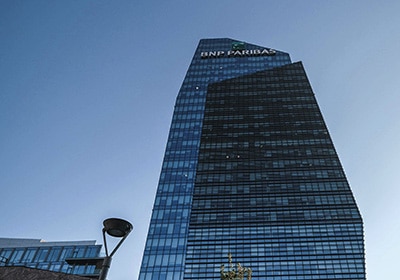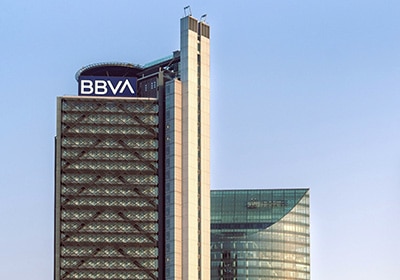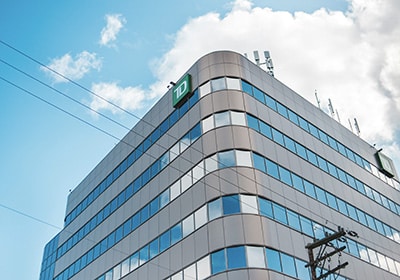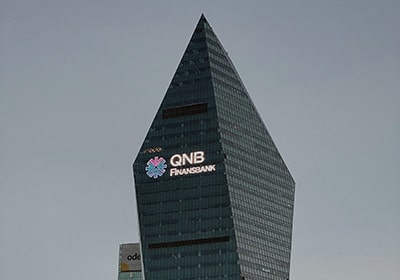15 Best Banks Worldwide
1. JPMorgan Chase (USA)

JPMorgan Chase sits firmly at the top of the global banking hierarchy. As the largest US bank by assets, it blends rock-solid financials with industry-leading innovation. The bank consistently posts strong returns on equity and maintains excellent capital adequacy ratios, especially during periods of fluctuating interest rates, which it navigates with effective hedging and pricing models. A credit to its experienced senior management team that continues to steer global strategy with precision, it’s also highly rated by major credit agencies, reinforcing investor confidence.
Beyond the numbers, JPMorgan has built an agile digital ecosystem, from its AI-driven investment tools to one of the best mobile banking apps in the world. These tools enhance everything from wealth management to transaction banking for institutional clients.
Its commitment to sustainability is growing, with green financing initiatives and ESG-aligned products that cater to the evolving demands of investors. Recognized as one of the world’s best banks, it continues to set industry benchmarks across all major sectors.
2. Bank of America (USA)
Best for: Global cash and liquidity management, especially for large corporations with complex operational footprints.
Bank of America offers a blend of scale, customer-centric design, and solid performance. In 2024, it exceeded $100 billion in revenue, driven by a healthy mix of lending and fee-based income, especially adept at managing assets through rising or falling interest rates. Known for its extensive retail presence, it has earned high satisfaction ratings for the third consecutive year among US retail banking clients.
Its digital platforms serve over 57 million verified users, using its AI-powered assistant “Erica” and other advanced digital services that enhance everyday banking. Strong credit ratings from Moody’s Corporation and Fitch back its reputation as a safe and stable financial partner.
Bank of America also leads in digital adoption and is frequently recognized as a top-tier cash management bank for corporations operating internationally. Its broad reach, across consumers, SMEs, and corporates, reinforces its role as a pillar of the US financial system.
3. Citigroup (USA)

Citigroup distinguishes itself with unmatched global reach, offering services in nearly 180 countries. Despite its size, the bank is undergoing a streamlined transformation to improve profitability and reduce operational complexity, led by a renewed senior management focus on simplification and operational efficiency.
In 2024, Citi achieved a solid return on equity and demonstrated operating efficiency improvements. Credit ratings remain strong, and its compliance structure is robust given its complex footprint. Citigroup is also innovating with digital tools and AI, particularly in institutional banking and treasury services, making it one of the most prominent global investment banks, particularly strong in transaction banking and treasury services.
Citigroup continues to develop its corporate banking arm with cutting-edge digital innovations across regions. Despite past restructuring, Citi remains a candidate for any list of the world’s best global investment banks.
4. UBS (Switzerland)
Best For: Foreign exchange services and hedging strategies for institutional and private bank clients.
UBS continues to be synonymous with global wealth management excellence. Following its high-profile acquisition of Credit Suisse, UBS has solidified its leadership in private banking. Its financial strength is underscored by healthy Tier 1 capital ratios and a stable credit outlook.
UBS is forward-thinking in tech too, integrating AI in portfolio analysis and offering sophisticated digital services for its high-net-worth clients. It’s also a sustainability leader in European finance, frequently ranking high in ESG benchmarks and integrating climate metrics into advisory services.
Since UBS is located in Switzerland, a country known for strong financial privacy laws, political stability and robust financial system, it is the ideal bank for offshore banking. UBS is known for its discreet and efficient onboarding process for opening an international bank account, especially for clients seeking cross-border access and private banking features.
Earning ESG leadership awards for the third consecutive year from global rating agencies, UBS combines commercial banking business with premier asset management under one global brand.
5. BNP Paribas (France)

BNP Paribas stands as the largest bank in Europe by assets, with strong fundamentals and a reputation for risk-conscious growth , a reflection of strong leadership from its senior management and board oversight. Its operations span corporate banking, retail, investment services, and a well-integrated investment banking division focused on European and emerging markets.
The bank consistently earns high marks from rating agencies, thanks to its diversified income streams, which insulate it from economic shocks that impact many banks more severely. BNP has accelerated its digital transformation across Europe and Asia, emphasizing user experience and cybersecurity. Its strategic interest rate management across eurozone markets reinforces its disciplined governance.
BNP is also a highly regarded global transaction bank, facilitating cross-border services across the EU and beyond. ESG is front and center for the bank, with strategic commitments in sustainable lending and decarbonization.
5. Standard Chartered (UK)
Best for: Consumer and retail banking in emerging markets with a global-standard experience.
Standard Chartered is a unique player among global banks, with a footprint that spans Asia, Africa, and the Middle East, markets that are often underserved by traditional Western banks. Though smaller than some US or Chinese giants, it punches above its weight in cross-border banking and trade finance, and adept interest rate hedging capabilities in high-volatility markets.
It is also a specialized global investment bank for emerging markets in Asia and Africa. Its financial foundation is stable, with a solid ROE and Tier 1 capital position. Ratings from Fitch and S&P remain investment-grade.
Digital innovation is a core part of its growth strategy, with significant investment in mobile banking and fully integrated digital services tailored to emerging market conditions. Its transaction banking network supports trade flows between the East and West, making it a vital partner for corporate clients.
6. BBVA (Spain)

BBVA is one of Spain’s largest financial institutions and a leading force in Latin America. The bank combines strong financial discipline with digital excellence. For the third consecutive year, it has won multiple awards for its online banking platforms, particularly in mobile banking.
It has achieved consistent growth in emerging markets like Mexico and Turkey while maintaining a solid Tier 1 capital ratio. BBVA’s sophisticated personal finance tools outperform solutions offered by many banks of similar size. The bank’s commitment to ESG is notable, having pledged over €300 billion in sustainable finance through 2025.
It also stands out for product innovation, especially in digital personal finance tools and green mortgages. BBVA is developing into a powerful cash management bank for businesses seeking tech-integrated financial tools.
7. Société Générale (France)
Best for: Green finance, sustainability-linked investment solutions, and ESG integration.
One of France’s most prominent banks, Société GénéraleSociété Générale operates with a diversified portfolio spanning retail banking, corporate finance, and investment banking — with a strong emphasis on structured finance and transaction banking services.
Though it has faced some challenges in past years, 2024 showed solid performance recovery, with improved ROE and operational efficiency despite challenges posed by volatile interest rates across Europe. The bank is highly rated by major agencies, with a stable outlook. It’s also pushing into digital innovation with fintech partnerships and AI-driven services across Europe.
Its commercial banking business in Europe also supports SMEs with a wide suite of tailored solutions. Société Générale continues to be a trusted institution, frequently ranked as a best bank in structured finance and energy transition advisory.
8. Kuwait Finance House (Kuwait)
Best for: Islamic banking, Sharia-compliant products, and halal financial services.
Kuwait Finance House (KFH) is a leading Islamic financial institution, known for pioneering Sharia-compliant banking in the Gulf. Its asset base continues to grow steadily, supported by strong demand for ethical and interest-free financial services. KFH’s profitability ratios are impressive relative to peers, and its capital adequacy remains well above regulatory thresholds.
While it doesn’t yet match global players in tech investment, the bank is advancing its digital strategy through mobile banking upgrades and fintech partnerships. Its brand is particularly trusted in Kuwait and neighboring markets, offering products tailored to cultural and religious needs. KFH is also beginning to integrate ESG principles into its lending criteria.
9. TD Bank Group (Canada)

Toronto-Dominion Bank is one of North America’s largest and most respected financial institutions. With strong returns on equity and a Tier 1 capital ratio above global benchmarks, TD consistently ranks among the safest banks in the world. It operates extensively in both Canada and the United States, offering a balanced portfolio of retail, commercial, and investment banking services, including a highly competitive commercial banking business and a strong global transaction bank platform.
TD Bank Group is also a leader in customer satisfaction in North America, with robust digital banking tools and continuous innovation in mobile services. Its ESG performance is solid, with commitments to net-zero financing goals and strong diversity governance practices. TD Bank Group also operates a respected transaction banking service for North American corporations.
10. BTG Pactual Empresas (Brazil)
Best for: SME lending, scalable digital banking for entrepreneurs, and Latin American small business support.
BTG Pactual is Brazil’s leading investment bank and a Latin American powerhouse in corporate banking and private equity. Though smaller in asset size compared to global giants, it consistently delivers strong returns on equity and profitability. BTG stands out for its innovation-first mindset. It was one of the earliest adopters of digital wealth management in the region and offers sophisticated investment platforms for SMEs and high-net-worth individuals.
The bank is active in ESG-themed investments, especially in renewable energy and infrastructure. With a growing international footprint in Latin America, BTG Pactual is strategically expanding beyond Brazil, proving that agility and innovation can rival size in emerging markets. Its strategic focus includes expanding into transaction banking for mid-sized enterprises in Latin America.
11. QNB (Qatar National Bank) (Qatar)

QNB is the largest bank in the Middle East and North Africa (MENA) region by assets and has grown into a powerhouse serving over 30 countries, offering diversified services including investment banking, corporate banking, and retail lending. Its financial performance is consistently strong, with solid ROE, capital buffers, and excellent cost control. It maintains high credit scores from Moody’s Corporation and Fitch, reflecting a stable outlook.
QNB is also making strides in digital transformation, rolling out AI-enhanced banking platforms and mobile-first services across the Gulf and Asia. The bank is investing heavily in ESG, including sustainable lending and green Sukuk initiatives. Its strong regional brand and strategic partnerships help position QNB as the financial hub of Qatar’s global ambitions. QNB also operates one of the region’s largest cash management and global transaction banking networks.
12. UBA (United Bank for Africa) (Nigeria)
Best for: Retail and SME banking in frontier African economies, with a focus on financial inclusion.
UBA is one of Africa’s most internationally diversified banks, operating in over 20 African countries and with offices in Europe and North America. Even though it is modest in asset size globally, UBA plays a critical role in financial inclusion and regional economic development while also building a foundation in corporate banking and transaction banking across West Africa.
This bank delivers solid returns relative to its regional peers and is increasingly investing in digital banking, especially through its mobile platform “Leo,” an AI chatbot-powered banking assistant. The bank’s sustainability initiatives include SME financing, financial literacy, and green lending. With rising customer satisfaction and improving governance, UBA is rapidly becoming a trusted African banking brand with growing continental influence.
13. Bank of Georgia (Georgia)
Best for: End-to-end digital banking for consumers, especially in regions that are digitizing fast.
Bank of Georgia is the country’s leading bank by assets and one of the most innovative financial institutions in Eastern Europe. It consistently posts high returns on equity, reflecting efficient operations and robust loan growth in its home market. It’s also evolving its commercial banking business, supporting SMEs and corporate borrowers with digital-first services.
The bank is a regional leader in digital banking, offering a full suite of app-based services and personalized financial tools. Its ESG profile is growing, with initiatives in inclusive finance and community investment. Although its global exposure is limited, Bank of Georgia is a strong example of how small market banks can deliver big market performance through digital transformation and customer focus.
14. Deutsche Bank (Germany)

Deutsche Bank remains Germany’s largest bank and a significant global player in investment banking, corporate finance, and asset management. After a prolonged restructuring period, the bank reported improved financial performance in 2024, including stronger ROE and more stable revenues. It continues to hold solid credit ratings and plays a key role in the European financial system.
Deutsche Bank has heavily invested in risk compliance and internal controls after past regulatory issues, emerging as a more resilient institution. It also has one of the most ambitious ESG roadmaps among European banks, pledging to align its loan book with the Paris Agreement by 2030. With renewed profitability and a sharpened strategic focus, Deutsche Bank is reasserting itself as a global powerhouse.
15. Mitsubishi UFJ Financial Group (Japan)
Best for: Corporate and institutional banking across Asia-Pacific, with a focus on conservative, long-term stability
As Japan’s largest financial institution and a key player in global investment banking, with strengths in syndicated lending and project finance, Mitsubishi UFJ Financial Group (MUFG) is a cornerstone of the global banking system. It holds one of the largest pools of deposits and assets in the world, with operations spanning Asia, Europe, and the Americas. MUFG is known for its conservative but stable approach, maintaining strong capital buffers and consistently high credit ratings.
This bank has been investing heavily in fintech ventures and digital transformation, including AI-driven customer service and blockchain initiatives. The group also leads Japan’s ESG finance efforts, issuing green bonds and promoting sustainable development through strategic lending. It also offers comprehensive transaction banking solutions across Asia-Pacific for multinationals.
Comparison: Top 15 Global Banks
Bank | Asset Size (USD) | Return on Equity (ROE) | Credit Rating |
JPMorgan Chase | $4.3 trillion | 15.4% | AA- (Stable) |
Bank of America | $3.3 trillion | 11.4% | A+ (Stable) |
Citigroup | $2.6 trillion | 8.9% | A (Stable) |
UBS | $1.5 trillion | 10.1% | A+ (Stable) |
BNP Paribas | $2.9 trillion | 9.5% | A+ (Stable) |
Standard Chartered | $850.0 billion | 9.6% | A (Stable) |
BBVA | $836.0 billion | 15.0% | A- (Stable) |
Société Générale | $1.7 trillion | 7.8% | A (Stable) |
Kuwait Finance House | $71.4 billion | 12.2% | A- (Stable) |
BTG Pactual | $26.0 billion | 20.5% | BB+ (Stable) |
Qatar National Bank (QNB) | $357.0 billion | 17.2% | A (Stable) |
UBA | $19.5 billion | 19.7% | B (Stable) |
Bank of Georgia | $11.2 billion | 26.5% | BB- (Stable) |
Deutsche Bank | $1.3 trillion | 8.0% | BBB (Stable) |
TD Bank Group | $1.9 trillion | 14.3% | AA- (Stable) |
Mitsubishi UFJ Financial Group | $2.8 trillion | 7.4% | A (Stable) |
10 Criteria for Measuring the Best Banks in the World
1. Financial performance
Core financial strength including profitability, revenue growth, and capital adequacy. Metrics in this category indicate a bank’s ability to generate profit, manage costs, and maintain financial health in line with global regulatory standards.
Metrics used:
- Total assets
- Return on equity (ROE)
- Return on assets (ROA)
- Net interest margin
- Tier 1 capital ratios
2. Credit ratings
Independent assessments of a bank’s ability to meet its debt obligations, typically by agencies like Moody’s, S&P, and Fitch. Strong credit ratings reflect the bank’s reliability and ability to manage risk, which is essential for institutional investors and large clients.
Metrics used:
- Long-term issuer credit ratings
- Outlook (positive, negative, stable)
3. Customer trust and satisfaction
Evaluation of customer experiences, loyalty, and perceived safety. A bank can have great numbers on paper, but if it fails to meet customer expectations, especially in the digital age, it won’t maintain its reputation.
How it’s measured:
- Consumer surveys
- Net Promoter Score (NPS)
- Complaint resolution speed
- Customer retention rates
4. Digital innovation and technology
The bank’s ability to develop or adopt modern fintech, mobile banking, AI, and cybersecurity tools. With digital-first banking now the norm, innovation is a key factor in retaining and attracting clients, especially among younger demographics and international users.
Indicators include:
- Quality of mobile and online platforms
- AI integration (such as chatbots, smart budgeting)
- Cybersecurity investment
- Fintech partnerships or in-house development
5. Global reach and operational scope
A bank’s ability to serve clients across borders through branches, digital platforms, and correspondent networks. Global presence is crucial for multinational corporations, expats, and high-net-worth individuals with international needs.
Considerations include:
- Number of countries served
- Cross-border transaction capability
- Multilingual support and currency flexibility
6. Risk management and regulatory compliance
How effectively a bank adheres to international banking regulations (e.g., Basel III), anti-money laundering (AML) laws, and local financial rules. Strong compliance reduces the risk of penalties and reputational damage, signaling long-term stability and trustworthiness.
Evaluated through:
- Regulatory stress test results
- Internal audit strength
- Anti-fraud and AML systems
7. Sustainability and ESG performance
A bank’s environmental, social, and governance initiatives. Investors and consumers are increasingly prioritizing ethical and sustainable institutions. ESG-focused banks often attract long-term capital.
Factors may include:
- Green lending and investment products
- ESG disclosures and transparency
- Diversity and ethical governance
8. Innovation in products and services
The bank’s ability to offer unique, useful, or disruptive financial services. Examples of these include cryptocurrency custody services, personalized investment platforms and SME-targeted financing models.
In a competitive landscape, banks that innovate tend to grow faster, better serve niche markets, and adapt to changing demands.
9. Strategic mergers and acquisitions
Growth through acquisition of valuable assets or customer bases, particularly in emerging markets or tech sectors. Smart acquisitions can rapidly enhance a bank’s capabilities, client offerings, and geographic reach.
10. Brand value and recognition
The bank’s reputation, visibility, and consumer perception. Strong branding fosters loyalty, attracts new business, and creates trust even before the first transaction occurs.
Sources for this include Brand Finance rankings, advertising reach and media mentions, and awards from industry experts.
Frequently Asked Questions About the Best Banks in the World
What is the most trusted bank in the world?
JPMorgan Chase is widely regarded as the most trusted bank globally, thanks to its strong financial performance, transparent governance, and consistent customer service across markets.
Which banks are ranked highest for customer trust?
JPMorgan Chase, HSBC, UBS, and RBC consistently rank among the highest for customer trust due to their reputation for stability, global presence, and comprehensive financial services.
Which bank has the best reputation for financial stability?
UBS and Bank of America are often cited for exceptional financial stability, backed by strong capital reserves, regulatory compliance, and diversified business models.
Which bank is considered the safest for international customers?
HSBC and Citibank are considered among the safest banks in the world for international clients, offering global account access, multi-currency services, and robust cross-border support.
Are there banks globally recognized for their transparency?
Yes, institutions like ING, DBS, and Nordea are known for their transparency, ESG reporting, and commitment to ethical banking practices.
What are the best banking systems in the world?
Countries like Canada, Switzerland, Singapore, and Germany are home to some of the best banking systems, offering security, innovation, and strong regulatory frameworks.
Which countries have the most secure banking systems?
Switzerland, Germany, and Canada are recognized for having highly secure banking systems, with strict capital requirements and robust consumer protections.
Which countries have the most efficient banking systems?
Singapore, the Netherlands, and Sweden are known for efficient banking, thanks to advanced digital infrastructure and streamlined financial services.
What countries have the most advanced banking technology?
South Korea, Singapore, and China lead in banking technology, offering AI-powered services, mobile-first platforms, and fintech integration.
How do global banking systems rank in terms of stability?
According to institutions like the IMF and World Bank, the most stable banking systems are found in Canada, Australia, and Switzerland, due to strong oversight and risk management.

 Choosing the right bank can make a significant difference when navigating an unpredictable economy, regardless of whether you’re managing your personal finances, growing a business, or investing internationally.
Choosing the right bank can make a significant difference when navigating an unpredictable economy, regardless of whether you’re managing your personal finances, growing a business, or investing internationally.
